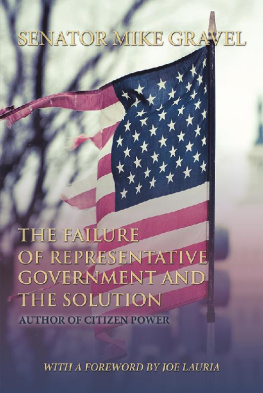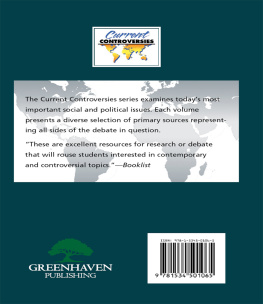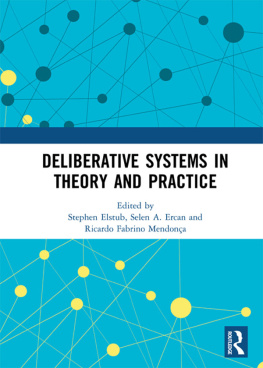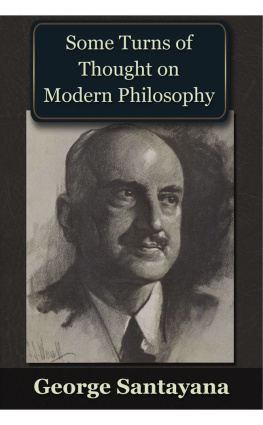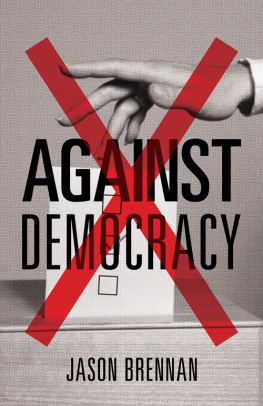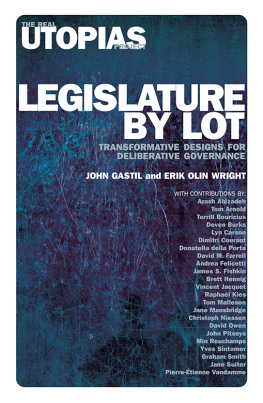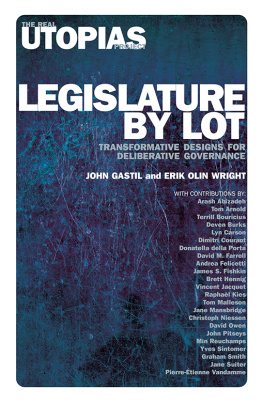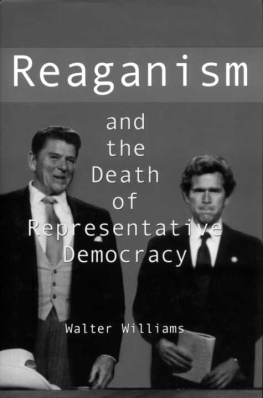Senator Mike Gravel - The Failure of Representative Government and the Solution: A Legislature of the People
Here you can read online Senator Mike Gravel - The Failure of Representative Government and the Solution: A Legislature of the People full text of the book (entire story) in english for free. Download pdf and epub, get meaning, cover and reviews about this ebook. year: 2019, publisher: AuthorHouse, genre: Politics. Description of the work, (preface) as well as reviews are available. Best literature library LitArk.com created for fans of good reading and offers a wide selection of genres:
Romance novel
Science fiction
Adventure
Detective
Science
History
Home and family
Prose
Art
Politics
Computer
Non-fiction
Religion
Business
Children
Humor
Choose a favorite category and find really read worthwhile books. Enjoy immersion in the world of imagination, feel the emotions of the characters or learn something new for yourself, make an fascinating discovery.
- Book:The Failure of Representative Government and the Solution: A Legislature of the People
- Author:
- Publisher:AuthorHouse
- Genre:
- Year:2019
- Rating:5 / 5
- Favourites:Add to favourites
- Your mark:
- 100
- 1
- 2
- 3
- 4
- 5
The Failure of Representative Government and the Solution: A Legislature of the People: summary, description and annotation
We offer to read an annotation, description, summary or preface (depends on what the author of the book "The Failure of Representative Government and the Solution: A Legislature of the People" wrote himself). If you haven't found the necessary information about the book — write in the comments, we will try to find it.
Senator Mike Gravel: author's other books
Who wrote The Failure of Representative Government and the Solution: A Legislature of the People? Find out the surname, the name of the author of the book and a list of all author's works by series.
The Failure of Representative Government and the Solution: A Legislature of the People — read online for free the complete book (whole text) full work
Below is the text of the book, divided by pages. System saving the place of the last page read, allows you to conveniently read the book "The Failure of Representative Government and the Solution: A Legislature of the People" online for free, without having to search again every time where you left off. Put a bookmark, and you can go to the page where you finished reading at any time.
Font size:
Interval:
Bookmark:
THE FAILURE
of Representative Government and
THE SOLUTION
A Legislature Of The People
SENATOR MIKE GRAVEL

AuthorHouse
1663 Liberty Drive
Bloomington, IN 47403
www.authorhouse.com
Phone: 1 (800) 839-8640
2020 Senator Mike Gravel. All rights reserved.
No part of this book may be reproduced, stored in a retrieval system, or transmitted by any means without the written permission of the author.
Published by AuthorHouse 12/17/2019
ISBN: 978-1-7283-3929-0 (sc)
ISBN: 978-1-7283-3930-6 (e)
Library of Congress Control Number: 2019920184
Any people depicted in stock imagery provided by Getty Images are models,
and such images are being used for illustrative purposes only.
Certain stock imagery Getty Images.
Because of the dynamic nature of the Internet, any web addresses or links contained in this book may have changed since publication and may no longer be valid. The views expressed in this work are solely those of the author and do not necessarily reflect the views of the publisher, and the publisher hereby disclaims any responsibility for them.
CONTENTS
To my wife, Whitney,
the love of my life
And to my children,
Lynne and Martin, and his wife Michele
And to my grandchildren,
Renee, Alexander, Madison and Mackenzie
And to my first great grandchild, Axel
With love and hope for the future
There is no shortage of articles, books and documentaries laying out in excruciating detail the many ills that afflict the United Statesan unfair health care system, historic economic inequality, endemic political corruption, racist police violence, illegal mass surveillance, climate degradation and perpetual warfare that bleeds dry the U.S. Treasury and the lives of countless innocent civilians.
The solutions usually offered to an increasingly dystopian society are piecemeal. Yet there is one central function, usually overlooked, which if radically reformed could open the way to solving all of these dire problems in tandem. Since it is the majority of people who suffer the consequences of these crises, it is only the people themselves who can solve them.
That central function is the power to make the laws that dictate how society works. In the hands of the elite, this power perpetuates problems for the people, which the elite see as bonanzas: income inequality, mass surveillance and militarized police keeping the population in check, and profiteering on climate-threatening fossil fuels, health insurance and especially war. Corruption of elected officials greases their schemes.
A very unusual American politician wrote this little book. He offers no empty slogans about taking the country back. Instead he tells you exactly how it is to be done, the only way it can be done, in a way easily understood by any citizen in just a few hours of reading.
Former Senator Mike Gravel has been a genuine maverick his entire career. He risked censure in the Senate and prosecution by the Nixon administration by first reading the highly classified Pentagon Papers (detailing the lies the US government told the people about the war in Vietnam) into the Congressional Record and then by publishing the Papers as a book.
Sen. Gravel opens this book with an obvious point that is overlooked: even representative governments, so-called democracies, run aggressive, imperialistic foreign policies. One need not have an emperor to run an empire. As a republic, France, for instance, maintained its African and Southeast Asian colonies well into the 1960s.
And America, the country that pretends it has no empire, has at least 800 military bases in every corner of the globe, which it has divided into military commands. Our elites try to overthrow every government standing in its way, even if it requires a military invasion. While literally trillions of dollars are squandered on these needless military and covert adventures, the U.S. has no real enemies who could defeat it, as Sen. Gravel explains.
Meanwhile this squandered wealth, the wealth of the taxpayers, should be used to serve the taxpayers with a rescued infrastructure, a national health insurance system like most of the industrial world enjoys, affordable education and housing and a government that doesnt treat its people like the enemies it claims it has abroad. Only the taxpayers can take back their taxes to serve their interests and not those of billionaires who prefer paying lobbyists rather than paying taxes.
The way the people can take back their country as if they ever had itis to take control of making laws for the first time on a national level. The idea is not absurd. It already exists in 22 states in the form of initiative lawmaking and in Switzerland, where citizen lawmaking co-exists with the national parliament.
Sen. Gravel pinpoints the origins of our corrupt system in the Constitution itself, with its compromises over slavery that still impedes us.
Nevertheless, he dug deep into the creation of the Constitution to build a legal argument for how a Legislature of the People can be legally formed. The simple details are in this book. Every American should read them to participate in power, how Cicero defined freedom.
It is a formula that will trouble the elites, wholl no doubt do everything in their power to stop this. But if America truly is a nation of laws and not men, they can be defeated.
One of the first laws the people would have to enact would be to break up the media monopoly, taking the news business out of the hands of powerful corporations and putting it into the hands of the community to hire editors and journalists who will represent the interests of the public and not the powerful. The media now only pretends to do this.
A second peoples law would be to break up the big banks.
A third would be to create a national health insurance program and a network of free public colleges, while canceling student debt. This will be paid for by the people voting to cut defense spending in half.
Five pieces of popular legislation in the Legislature of the People, if fully implemented, that would radically transform the United States to look more like the democracy it says it is and should have been intended to be. America would ignore Sen. Gravel to its peril.
Joe Lauria
Editor-in-chief
Consortium News/
Former Wall Street Journal
correspondent
August 26, 2019
Alexandria, Virginia
Terry Adlhock, Cynthia Ahwinona, Richard M. Aks, Sami Al-Arian, Kevin Almudai, Don Argetsinger and Lynda Hadley, Joyce Aruri, Robert H. Ashford, Richard Aucoin, Sadia Barrameda, Robert A. Beaver, Anna Beck, Dan Belforti, Byron Belitsos, Pennie Bell, Spence Benbow, Medea Benjamin, Jerri Bigelow, Ron and Neena Birch, Jan Black, Eli Bleich, Adelaide Blomfield, Heida Boucher, Mark Boyer, Daniela Bozhinova, Tim Bradner and Shehla Anjum, Mike Bradner, Edgar Blatchford, Greg Boggs, Judy Brady, James and Mary Jo Brauner, Jeanne and Gerard Breton, Helenka Brice, Pauline Brignano, Ellen Brown, Paige Bryan, Cindy Bryson, Jake Burdett, Dylan Burns, David Burton, Nancy Burns, Jeff Cacy, Roselynn Heath Cacy, Jesse Calhoun, Henry and Betty Camarot, Rod and Michelle Carman, Roger and Joan Caron, Jess Carr, Larry Carr, Jackie Carr, Tom and Heather Cashen, Alex Chang, Frank Chen, Joe Cherhart, Daniel Chernov, Noam Chomsky, Benjamin Church, Dianne Church, Bobbie Jo Clark, Ramsey Clark, Sam Conley, Mike Costelloe, Robert Cottone, C. Deming Cowles, John Creed, Elizabeth Croteau, Christina DAmico, Frank and Ada Degnan and their daughters Ada June and Frances Ann and Ida May and Laura, Diane and Jim Demers, Helene Desjardins and Pierre Sylvestre, Roger Dittman, Barbara Murphy Donatelli, Tom Donnelly, Alex Dooley, Mark Dowie and Wendy Schwartz, D. J. Dunnington, Judith Ehrlich, David Eisenbach, Patricia Jean Summerville Eldridge, Daniel and Patricia Ellsberg, Elijah Emery, Jan Erickson, Marlon J. Ettinger, Bettye Fahrenkamp, Mary Louise Faunce, Kay Ferguson, Stan Filler, Richard Fineberg, Lynne Finney, Victor Fischer and Jane Angvik, Charles L. Fishman, Anne Fitzpatrick, Deborah Nordwall Flaschen, Mark Fleishman, Gregory Fossedal, Mike Foudy, Esther Franklin, Oral Freeman, Victor Fuchs, Tulsi Gabbard, Larry Gage, Anita Gallagher, Hugh Gallagher, Fred Gamble, Cam and Roxane Gardett, Jerry and Cathy Gauche, Susan Giffin, James and Miriam Goller, Barney Gottstein, Jim Gottstein, Michael Grant and Penelope Lewins, Bernard Gravel, Lionel and Dolores Gravel, Marguerite Gravel, Hilda Woods Haas, Lynda Hadley, Kathy Morgan Hamel and Charles Hamel, Bill and Fran Hamilton, Catherine Hand, Lloyd and Ann Hand, Craig Hannigan, Stan Harhut, Donna Harlow, John Havelock, Ron Hawk, Janet Isak Hawley, Roslynn Heath, David and Hi-Jin Hodge, David Hoffman, William L. Hoffman and Suzy Dittrich, Nicholas Holthaus, Barbara Honegger, Edith Russell Hooton, Willie Hensley, Bill Howard, Peter Huessy, Sam Husseini, Mindi Iden, Paul Jacob, Elliott Jacobson, Gordon and Rachel James, Michael Jingozian, Rockland Johnson, Wayne Johnson, Theodore Johnson, Douglas N. Jones, Tyler Jones, Cheryl and Buzz Joseph, Carolyn Kelley, Fred and Margaret Keip, Louis Kelso and Patricia Hetter Kelso, Donald Kemner, Kathy Kendall, Sam Kito Jr., Babs Klein, Afifa Klouj, Kathryn Kohn, George Kokkas, Laurence Kotlikoff, Jon Kraus, Tom Lantos, Joe Lauria, John Lee, Nancy Leonard, Don Lesh, Rickie Limerick, Paul E. Linet, Marie and Thomas Lombardi, Tom Lombardi, Beverly Long, Sharon Long, John Loxtercamp, Don Lundbom, Helen Lupro, Annie Machon, Nancy MacWood, Henry Magowan, Bill Maguire, Linda Freeman Maher, Nancy Markley, Byron Mallott, Dennis Maloney, Bill Marks, Mark Mayo, James McCrink, Ray McGovern, Skyler McKinley, Cynthia McKinney, Craig Medred, John Meier, Dawn Meiklejohn, Alex Miller, Barbara Miller, Don Mitchelll, Robert L. Mitchell, Elizabeth Schoenfeld Moler, Bill Monning, Lael Morgan, Drake Mosier, Peter Moskovites, John Musick, Ralph Nader, Joseph Napolitan, Stan and Myrian Norris, Emil Notti, Egan OConnor, David Oks, Ray Paddock, Jim Palmer, David and Jacqueline Parrish, Gordon Parker, Kristie Patterson, Edward L Patton, Cici and Jeffrey Peters, Chris Petherick, Bernard (Perry) Poirier, Gareth Porter, Pat Pourchot, Raymond Potvin, Amy Prestegard, Joshua Pritikin, Mark Raskin, Evan Ravitz, George Rebh, Richard Rebh, Gladys (Eve) Reckley, Robert Reinstein, Roxane Reynolds, Carolyn Ritch, Marialyse Rivers, Tom Roach, Howard Rock, Jose Rodriguez, Mary Ross, Patrick Rodey, Bob Rosen, Joe Rothstein, Irene Rowan, Mike Rowan, Mark Ruffalo, Cindy Harlow Sadler, Susan Sarandon, Chuck Sassara, Nancy Markley Schoephoester, Bernie Schroeder, Tom Scott, Evan Scully, Fred and Lydia Selkregg, Sheila Selkregg, Ron Senecal, Leon Shapiro, Gil Serrano, Bill Sheffield, John Shively, Maureen A. Shul, Harvey Silverglate, Jill Smythe, Tom Smythe, Norman Solomon, Stacy Standley, Allan and Lynn Stewart, Jim and Susan Stewart, William K. Stewart, Jeremy Stone, Shelby Storck, John and Doris Sutter, Tony Schwartz, Mike Szymanski and Sheelah Shelton, Jonathan Suhr, Christina Tabora, Sean Taplin, Francine Lastufka Taylor, Lex Taylor, Rohan Thakker, Richard and Barbara Thomas, Scott Thomas, David Tobias, Emerson Toomey, Oscar Tu, Deborah Tuck, Charles Turk and Sylvia Shih, Kate Tyler, Jerry Udell, Curtis von Kann and Mary Barber, Lisa von Kann, Terry Venneberg, May Waldroup, Skye Wallin, Dane Waters, Alec White, Rita Gravel White, Beth Wilbur, Darlee Williams, Faith Williams, Henry Turner Williams, Marianne Williamson, Kristie Patterson Wise, Marty Wolf, Richard Wolff, Rosita Worl, Theresa and Scott Wrangham, Hassan Yassin.
Next pageFont size:
Interval:
Bookmark:
Similar books «The Failure of Representative Government and the Solution: A Legislature of the People»
Look at similar books to The Failure of Representative Government and the Solution: A Legislature of the People. We have selected literature similar in name and meaning in the hope of providing readers with more options to find new, interesting, not yet read works.
Discussion, reviews of the book The Failure of Representative Government and the Solution: A Legislature of the People and just readers' own opinions. Leave your comments, write what you think about the work, its meaning or the main characters. Specify what exactly you liked and what you didn't like, and why you think so.

